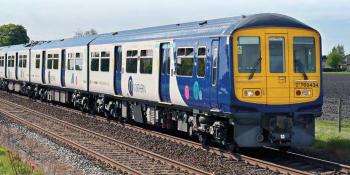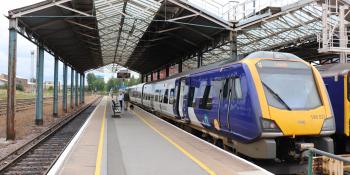
Members of the RMT union are to strike at Network Rail and 13 train operating companies on 21, 23 and 25 June over concerns about job cuts and pay increases.
ScotRail and TfW Rail were not balloted as the respective devolved governments control the rail companies there: neither were Merseyrail, London Overground, MTR Elizabeth line, open access or freight operators.
Staff at all of the companies balloted voted for strike action, with the RMT claiming 71% of members affected voted with 89% in favour of strikes. Only staff on Govia Thameslink Railway (who voted for action short of strikes) and Island Line voted against strikes.
In a separate dispute over pensions and job losses, London Underground RMT members were due to strike on 21 June, with the union claiming a first strike on 6 June ‘shut down’ the network. A ballot for strikes will take place on ScotRail over what the RMT describes as a ‘derisory’ pay offer of 2.2%.
Sustained campaign?
At the announcement of strike dates on 7 June, RMT General Secretary said that ‘despite our best efforts in negotiations, the rail industry with the support of the government has failed to take their concerns seriously.’
He said it was ‘unacceptable’ that rail staff could either lose their jobs or face ‘another year of pay freeze’ at a time of high inflation. Mr Lynch also claimed train operators were making ‘at least £500 million a year in profits whilst fat cat rail bosses have been paid millions during the Covid-19 pandemic.’
‘Our union will now embark on a sustained campaign of industrial action which will shut down the railway system,’ he warned.
Unsustainable funding?
Representing train operators in response, the Rail Delivery Group argued that rail revenue stands at around 82% of pre-pandemic levels, and that the £16 billion of funding received during the pandemic to keep trains running meant the industry was ‘taking more than its fair share from other public services’. It added that the Government ‘cannot continue to commit to increased levels of funding indefinitely, calling for changes to working practices such as reducing the reliance on rest day working and increasing the flexibility of staff to work at different locations.
RDG Chair Steve Montgomery said: ‘We urge the RMT’s leadership to call off needless and damaging strikes and continue to work with us to ensure a fair deal for our people and for the taxpayer while securing the long-term future of the railways.
‘No one wins in the event of a strike. Staff lose pay, the industry loses vital revenue making it harder to afford pay increases, and passengers and businesses are disrupted.
‘While we will keep as many services running as possible, sadly if this action goes ahead, significant disruption will be inevitable. We therefore urge passengers to plan their journeys carefully and find alternative ways to travel during the strike period where possible.’
Mr Lynch also said: ‘RMT is open to meaningful negotiations with rail bosses and ministers, but they will need to come up with new proposals to prevent months of disruption on our railways.’
Voting for strike action and action short of strike:
• Avanti West Coast
• C2c
• Chiltern
• CrossCountry
• East Midlands Railway
• Greater Anglia
• Great Western Railway
• LNER
• Network Rail
• Northern
• SouthEastern
• South Western Railway
• TransPennine Express
• West Midlands Trains
Voting for action short of strike:
• Govia Thameslink Railway including Gatwick Express
Voting against strike action
• Island Line




